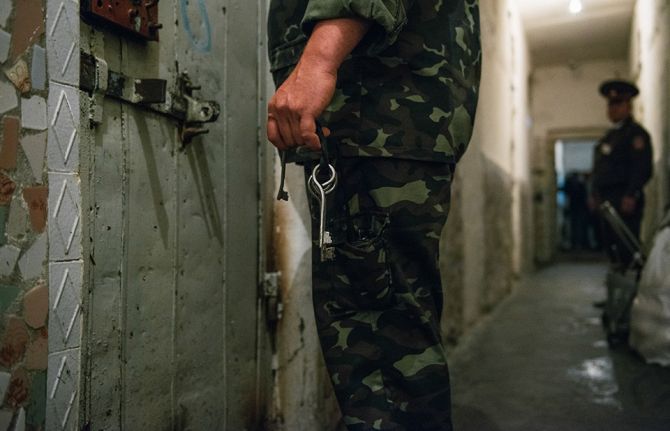

Feature Story
COVID-19 in prisons—a ticking time bomb
13 May 2020
13 May 2020 13 May 2020With more than 11 million people in custody worldwide, and 30 million people entering and leaving detention every year, the threat of COVID-19 for people in prisons is very real. In the vast majority of the world’s overcrowded and underfunded prisons and detention centres, physical distancing is simply not an option. In situations where close confinement, shared facilities and spaces and poor hygiene are commonplace, inmates and prison staff are living in constant fear of the ticking COVID-19 time bomb.
“A health response to COVID-19 in prisons is not enough. This unprecedented global emergency demands a response based on human rights,” said Winnie Byanyima, Executive Director of UNAIDS. “Countries must ensure not only the security but also the health, safety and human dignity of people deprived of their liberty at all times, irrespective of any state of emergency.”
UNAIDS, the Office of the United Nations High Commissioner for Human Rights, the World Health Organization and United Nations Office on Drugs and Crime are calling on leaders to make detention a last resort, to close drug rehabilitation detention centres and to decriminalize sex work, same-sex sexual relations and drug use. They are urging countries to release the people who can be released and to consider people at risk of COVID-19, such as older people and people with pre-existing health conditions. Other people, including people sentenced for minor, non-violent offences, pregnant women, women who are breastfeeding and children, should also be considered for release.
As reports of terrified inmates sewing makeshift masks continue to emerge, countries are starting to take action. The Government of Ethiopia, for example, has released more than 30 000 prisoners and has heightened sanitation measures. Indonesia is releasing more than 50 000 people, including 15 000 people incarcerated for drug-related offences. The Islamic Republic of Iran is releasing 40% of its total prison population,100 000 people, while Chile is set to release around 50 000 people.



